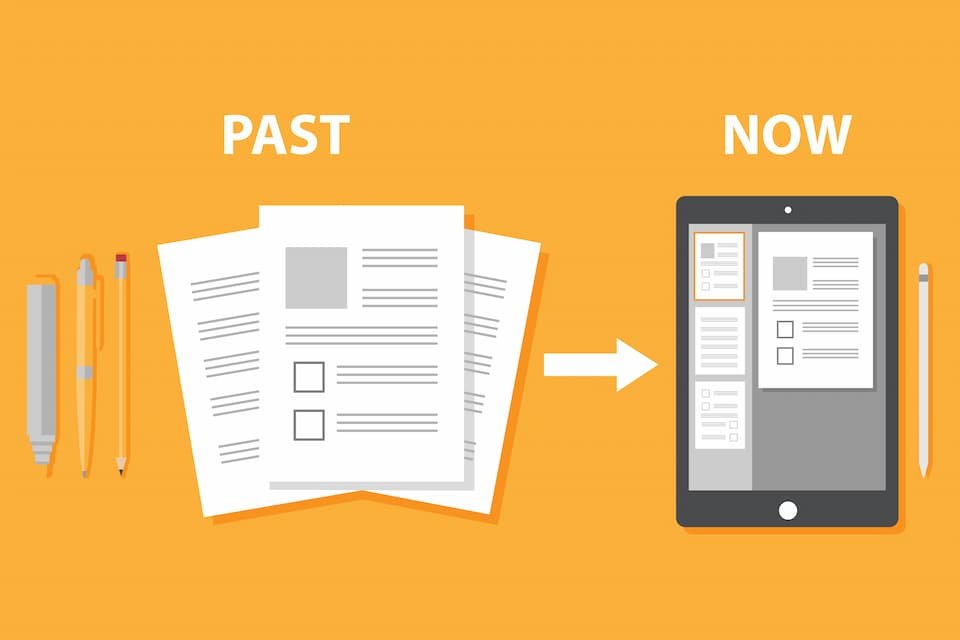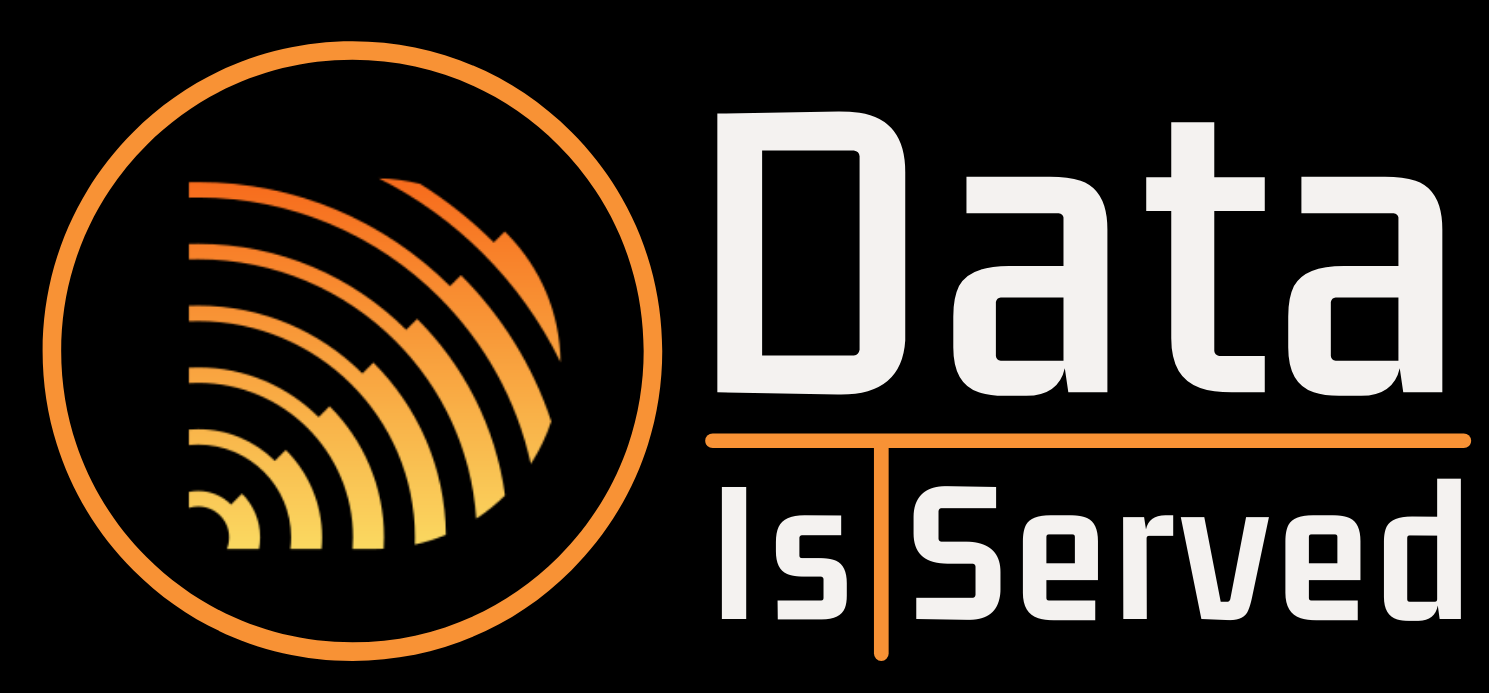Turn Paper Mountains into Your ABCs of Cash Flow

You have papers everywhere- like receipts, names, contacts, bills, appointments, Post-It notes, and supplies to buy. Do something with that paper.
To win in business, you need to Always Be Counting- ABC. The number one problem that kills businesses is the lack of hard-core cash. If you don’t count it and count it regularly, you lose track of it.
But you don’t have time to be accounting for receipts, bills, taxes, and inventories all day long. You will get to it later. As a business owner, cash flow is your pulse, and you need to keep a regular, at least daily, check on it to make sure that your business is staying alive and striving towards your goals.

Data Is Served will create a customized way for you to organize and streamline your Paper Mountains into information dashboards that continually let you know where you stand with cash in near real-time.
Instead of waiting until later to do this paperwork, which only makes you tired thinking about it, do business at the speed of now. Let Data Is Served put this paperwork on autopilot.
The ABCs of Small Business Cash Flow
“Measurement is the first step that leads to control and eventually to improvement. If you can’t measure something, you can’t understand it. If you can’t understand it, you can’t control it. If you can’t control it, you can’t improve it.”
H. James Harrington
To win in business, you need to Always Be Counting- ABC. The number one problem that kills businesses is the lack of hard-core cash. If you don’t count cash and the things that cost you cash and count them regularly, you lose track of it.
Then, like water down a drain, the money is all gone (and you don’t even know where to) before you know it.
How can you, an already busy business owner, always be counting, you have other work to do? And what are you supposed to be counting anyway?
Also, you count the things that make you cash and cost you cash. Look at this breakdown for example:

Things that make you cash: Assets
Income- money from paying customers
Things that cost you cash: Liabilities
- Taxes- local, state, federal
- Inventory- whatever materials you need to do produce your product or service
- Payroll- Especially if you are just paying yourself
- Fuel- gas, diesel or grease
- Supplies- items you use to conduct business like laptops, pens, whiteboards, and software
- Utilities- electricity, phone service, and Internet
- Professional fees- when you need to renew your licenses or membership
- Travel- driving/commuting/flying from one location to the next to get work done
- Insurance- you have to protect your business from the unexpected
- Education materials- stay sharp, keep learning with books, seminars, etc.
- Legal fees- someone has to make sure those contracts stick
- Fines- sometimes we mess up, then have to pay for it
- Interest on Loans- because it is not a grant
- Rent- landlords have expenses to pay too
Most small businesses need to track over 15 essential cash-impacting items. Your list might be longer.
So how can you always be counting over 15 things at once? You let programs count for you. Then you let the program give you the results when you ask for them.
So how can you always be counting over 15 things at once? You let the programs count for you. Then, let the program give you the results when you ask for them.
Hopefully, you are already tracking each of these items from the assets and liabilities list using accounting software. Next, your accounting software needs to talk with your core business management software, or at least the software you use to receive payments, account for taxes, and hours worked.
Surely, accounting software can handle some of these tasks as well, but rarely is one software tracking every item you need to account for when it comes to your cash flow. Your software packages need to talk to each other.
Always be counting to prevent your business from losing sight of where the money flows. Data Is Served can help your business craft a customized way to integrate your software systems so that you can always be counting.
What Does It Look Like When a Business Uses the Always Be Counting Method?
The Always Be Counting (ABC) method provides business owners a dashboard view of the critical values that impact their business life.
These key values answer critical questions that every business owner should know. They include:
- How do you know if your business is making cash or losing it, on any given day, week, month or quarter?
- How do you know if your business is on track to meet its sales goals for the day, week, month, or quarter?
- How much cash does your business need to have to earn to survive from one day, week, month, or quarter to the next?
- What are your most profitable and least profitable products or services?
- Who are your most profitable and least profitable types of customers?
- How much inventory do you need on any day, week, month, or quarter to support your product and service demands?
- Do you have enough employees to support your workload or do you need more or less?
- Is one location more profitable than another, if so, why?
- How many customers are happy with your service? How many are not pleased with your service?
- How much do you need to pay out in taxes this month?
- How many hours of your time did it take this day, week, month, or quarter to generate your income?
- Here’s another question. Do you have a business plan? What is the point of a business plan? It tells you what you need to do in order for the business to succeed, or at least provides you an idea. The meat and potatoes of that business plan are your Product and Services, Marketing Plan, Sales Strategy, and Financial Projections. These are the components that generate or greatly influence cash flow in your business. If these components fail, the company will fail.
The ABC method uses software to monitor these core values automatically. So, instantly, you can know where your business is on the road to living out the goal of your business plan. In short, the ABC method answers one of the most important questions for a business, “Are you hitting your numbers?”
Do Something with Those Numbers
So, you are using the Always Be Counting (ABC) method to keep track of your business’s cash flow and meet your business plan goals. Now, what are you going to do with those numbers?
What you do with those numbers needs to be tailored to your business and to your goals. Yet, every business can do some essential things with their ABC method numbers.

What you do with those numbers needs to be tailored to your business and to your goals. Yet, every business can do some essential things with their ABC method numbers.
For one thing, pay tax bills on time so that you don’t get fined. An ABC-type dashboard below that tells you quickly, how much cash needs to go out for taxes and where.
No calculator is needed. This was all done automatically with programming. Your tax commissioners will thank you.
Next, you can know the when what and where of your hottest items. An ABC dashboard lets you know your best sellers and when they happen. This information could be used for a variety of purposes. For example, by tracking these values over time, you could decide how to edit your product offering, more accurately predict inventory needs and negotiate better pricing.
You already have an ABC-type dashboard in your bank account. This is a catch-all for all of those items that cost cash in your business. It is vital to keep a regular pulse on this figure. This chart could let you pinpoint areas for cutting costs in creative ways. For instance, there is a lot of travel. Could some of these trips have been condensed into one instead of multiple? Could those trips have been replaced with scheduled deliveries? If fuel costs are high, is it because the vehicle needs to be serviced, or is it time for a replacement? Do purchases match product and service demands?
The possibilities for extracting business value out of ABC method dashboards are immense. Let Data Is Served get you on the path to reaching your business goals.
Doing Business at the Speed of Now
We don’t like to wait. It is 2020, and for most things, that are information-driven at least, we should not have to wait. Scheduling an appointment, getting an estimate, getting an invoice, making a payment, checking an account status- we want to do all of that stuff, NOW!
And we can. Software, information, and formulas exist to accommodate our appetite for doing business at the speed of now.
If you are not operating your business at the speed of now, you are probably running it at the speed of when I get to it. Working at the speed of “when I get to it” is tiresome. It is also dangerous for the small business owner because you already have enough on your plate. There is limited time in the day and a mountain of paperwork. Why not knife through these tasks with automation?
Automation takes a task and allows a program to do as much work with as little human interaction as possible. This does not make your business impersonal, it actually frees up a lot of time, makes your business more efficient, and provides more time for customer care.
Activities like spending hours on the phone scheduling, pouring over a calculator to do estimates, and copying and pasting information from one place to another can all be replaced with automation.
The automation for the service professional comes in the form of smartly integrated formulas, field services software, payment platforms, and accounting software.
